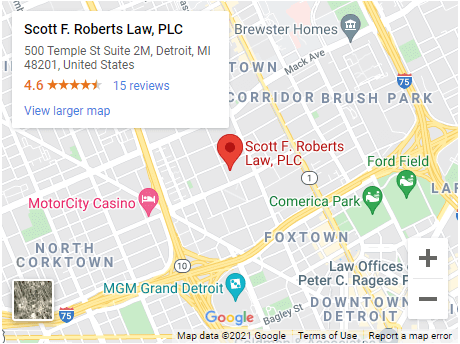It is well-established that cannabis is a federally illegal substance, no matter what the States think. Consequently, legal cannabis still has intense federal scrutiny, and federal restrictions. This scrutiny will become a substantial roadblock for legacy cannabis companies as they scale, increase their volume, and grow larger profits.
The cannabis industry’s exponential growth is catching up to itself – recent market price values show that the vast number of cultivators have saturated the industry’s supply. This saturation forecasts an inevitable price dip that results from too many suppliers and too few commercial purchasers able to get the product to consumers.
In Michigan, the average price of a recreational pound of cannabis has dropped from approximately $1,300-$1,500 down to $700-$900 (with lows as far as $500 in February alone). These sale values result in cultivators ultimately selling their cannabis for nothing more than the overhead required to produce it in the first place – making many companies unprofitable – and more importantly, unsure how they will repay their creditors.
To complicate matters further, many cannabis businesses are funded by creditors/shareholders who happen to be friends and family. These relationships are easily soured when debts pile up and these creditors start knocking on your door for repayment.
So why is this concerning? These circumstances spell a clear path to bankruptcy (the federal legal avenue to declare an entity immune from having to repay its creditors).
Bankruptcy is often a death sentence for a company, but it can also be an effective tool and lifeline for business owners facing financial troubles. Unfortunately, cannabis is still listed as a Schedule I Drug under the Controlled Substances Act (CSA) – so this lifeline is unavailable to companies and individuals seeking protection from creditors if their debts or interests touch a state’s cannabis industry
Bankruptcy courts are federal courts that find themselves stuck between a rock and a hard place. On the one hand, they would prefer to perform their literal function and assist business owners in need of good faith protection from creditors seeking to destroy these companies and recover their investments. There are bankruptcies that are a result of mismanagement and shady business methods, but there are a great many caused by market forces out of these companies’ control – this is who the bankruptcy courts were created to protect.
On the other hand, these federal courts cannot in any way facilitate or assist in the sale of illegal substances. The result is that in extremely rare instances, a bankruptcy court will hear a case for cannabis related businesses – but a vast majority of the time, bankruptcy courts will reject cannabis company’s bankruptcy petitions. For cannabis business owners, this means turning to extremely less effective alternatives for relief when their debts become unmanageable. The few instances of cases making it to bankruptcy court have left cannabis business owners and lawyers in a state of uncertainty as to when a case will be decided by these courts.
Looking at the Bright Side
Leaning optimistically for cannabis businesses, experts turn to Burton v. Maney (9th Cir. BAP). In this action, the federal bankruptcy court ultimately decided to dismiss the case on behalf of the creditors, finding a variety of causes for why the case could not be heard. There were reportedly more debts than allowed under the Chapter 13 bankruptcy for which they applied for, as well as the debtor’s inability to confirm a financial plan for over a year.
Notably, however, the opinion of the court did consider the blatant dissimilarity created by Arizona State Law and the federal bankruptcy code. The Bankruptcy Council left circumstances under which they could hear cannabis business cases open for consideration. The panel determined that “the mere presence of marijuana near a bankruptcy case does not automatically prohibit a debtor from bankruptcy relief.” (Maney 9th Cir. BAP).
This sentiment carried over into another bankruptcy proceeding, In Re Player’s Network. In this action, the debtor simply held a controlling interest in a cannabis company, but the business itself had nothing to do with cannabis cultivation or commercial sales. Nevertheless, the Nevada court again chose to dismiss the case at the request of the creditors due to the debtor’s interest held in a cannabis company. Despite dismissing the case, the court again noted that the 9th Circuit of U.S. Federal Courts did not have a “per se rule precluding a Chapter 11 plan from being proposed in good faith based solely on the debtor’s relationship to commerce involving marijuana or cannabis products.” Unfortunately, this optimistic language has not had the desired effect on cannabis companies’ bankruptcy actions.
In another bankruptcy proceeding, In Re Pharmagreen Biotech, Inc. (Bankr. D. Nev.), a Nevada court appears to have taken a step back from the Maney court’s ruling. This action questioned whether a U.S. company that strictly invested in Canadian cannabis production (refusing to operate or finance U.S. operations until federal laws changed) is eligible for protection under the federal bankruptcy code.
Despite this degree of separation, the court dismissed the case because the debtor’s business plan focused on producing marijuana cultures, a business activity prohibited by U.S. federal law. The opinion states that despite this practice’s legality in Nevada, “you just can’t use federal courts to protect marijuana cultivation”. Speculators have interpreted this language as a firm denial of whether of cannabis companies can receive protection from the bankruptcy code.
This supposedly shuts the door on bankruptcy code protection for a company that has any involvement with the cannabis industry. Without explicit bans on a bankruptcy court hearing a cannabis company case, the initial theory was that the more distance a company had from “touching” the cannabis products and operations, the more likely that company was to receive bankruptcy protection. This theory has mostly evaporated following the categorical dismissal of bankruptcy petitions if the debtor has even minor connections to the cannabis industry. Whereas bankruptcy is not necessarily a death sentence for a company, the reality of no bankruptcy protection for cannabis businesses means they must rely on inferior debt relief methods – generally resulting in complete liquidation.
Alternative 1: ABC
One alternative method is known as an Assignment for the Benefit of Creditors (ABC). This method allows the owner(s) of the failing cannabis business to assign their assets to a third party and slowly discontinue operations as the company is liquidated. General assignment avoids bankruptcy court completely and is governed by state law, which is why it is available to cannabis companies. The third party controls the dissolution and no input from the creditors is allowed, but the company is nevertheless liquidated to satisfy as much of its debts as it can.
Alternative 2: Receivership
Another alternative to the federal bankruptcy code protections is a State Law Receivership. There a few different varieties of receiverships differing on the reason it is needed and what entity will actually appoint the receiver. For cannabis companies the usual reason it is needed is insolvency, which requires a state court to appoint a receiver that will manage the business in a way that ensures creditors are paid what they are due. Business owner(s) usually opt for receivership as a last resort (as it strips all control from the owner(s) and allows the receiver to determine whether the company can sell some of its assets to avoid shutting down or if selling/liquidating the entire company is the best way to repay its debts).
Alternative 3: The Negotiator
The final alternative used by cannabis business owners is to just avoid any legal action such as assignment of assets or control of the company and enter into “Workout Negotiations” with their creditor(s). These workout negotiations are exactly what they appear to be – a process in which the debtor and creditor(s) sit down outside of any court order or direction and attempt to settle on a mutually acceptable plan on how to move forward. This can be the most beneficial method for cannabis business owners if it is successful, however, when dealing with vast amounts of debts, it can be difficult to reach a solution that both debtor and creditor can agree to.
Obviously, cannabis business owners would like to avoid these alternatives and not have to contemplate bankruptcy by any means. Easier said than done. The most effective way to avoid these processes is to account for such a scenario at the beginning of the venture. For many cannabis business owners, investment comes from a select few players or entities known to the business owner. The offering memorandum is the default tool to circulate to these potential investors to garner the interest necessary to get the business off the ground, however, offering memorandums can be an angry creditor’s “best friend”.
If an offering memorandum (essentially just a thorough business plan) makes certain promises/declarations, or outlines management/communication styles that the business strays from, creditors have a clear avenue for misrepresentation lawsuits. At the same time, these detailed offering memos often are what investors need or want to see before they provide any sort of capital commitment. This sharp contrast requires business owners to carefully balance A) creating documents that deliver informative-enough justifications for investment – without – B) overpromising realities that the business cannot deliver. Finding this balance or perhaps not creating an offering document (if investment can still be procured) is the best way to avoid actions based on misrepresentation in the document.
Going Forward
As the cannabis industry matures and unsustainable businesses are weeded out, the question of bankruptcy for these businesses will only become more prevalent in the court system. There is already pressure on bankruptcy courts to handle these proceedings as there is no per se rule barring these companies from accessing bankruptcy protection. Despite no rule, courts have decided that since they are part of the federal judiciary, they cannot provide protection for federally illegal businesses. This means that cannabis business owners are unlikely to be granted the protection that bankruptcy offers until federal law is changed, and cannabis is removed from the CSA Schedule I.
Until then, anyone involved in the cannabis industry ought to consult with financial experts frequently and have skilled attorneys able to handle any of the inevitable issues that arise within an industry that has grown as quickly as cannabis. The capable attorneys of Scott Roberts Law Firm have been servicing the legal needs of business owners in the cannabis industry since 2014, making them a top choice to address any cannabis business problem.
By: Scott Roberts and Louis Magidson




